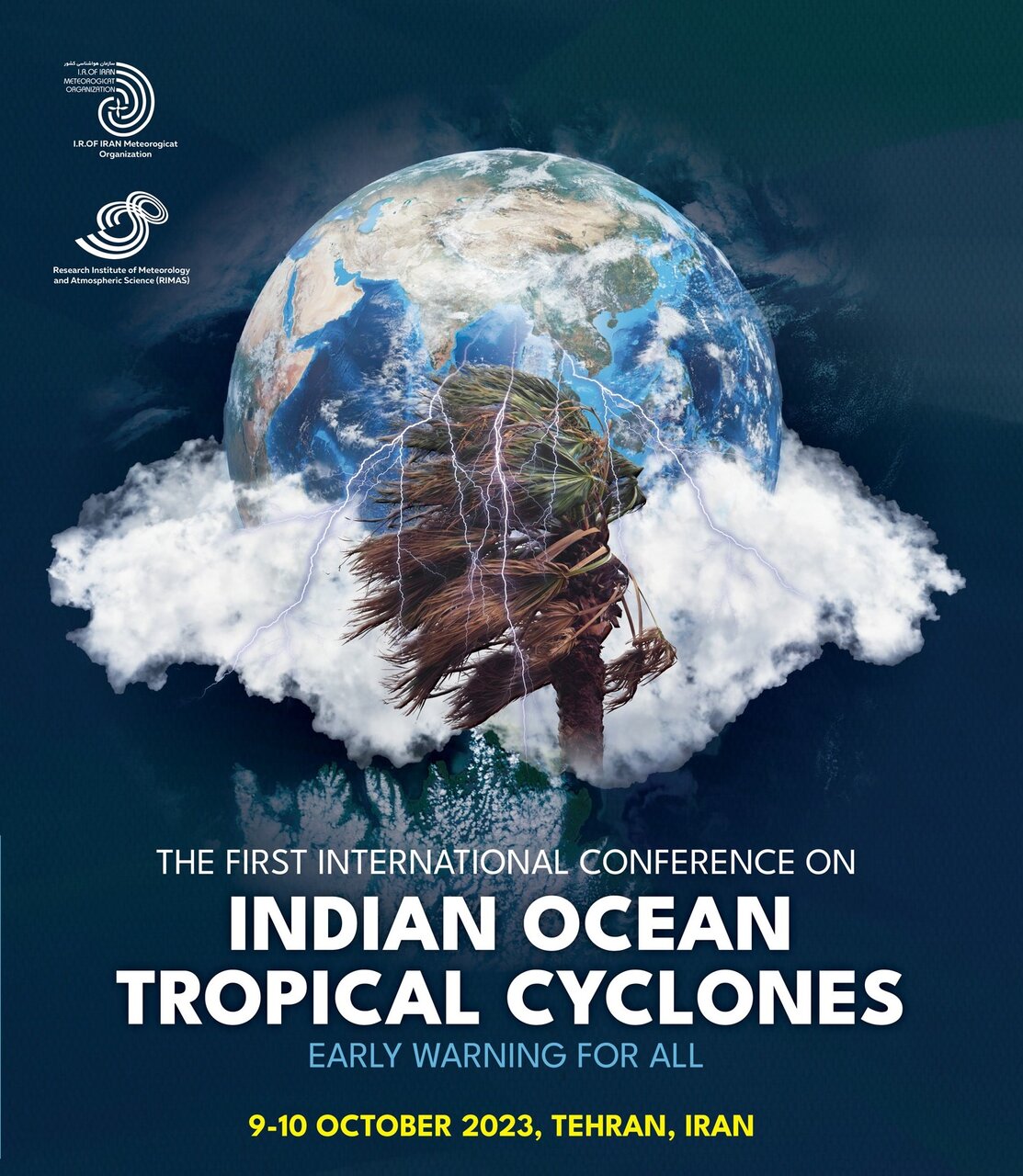Tehran to host Intl. Conference on Indian Ocean Tropical Cyclones

TEHRAN - Iran Meteorological Organization plans to hold the First International Conference on Indian Ocean Tropical Cyclones on October 9-10.
The event will be held on the occasion of the 50th anniversary of the establishment of the World Meteorological Organization Tropical Cyclone Panel, IRIB reported.
Informing people about tropical cyclones, their effects, and consequences; finding appropriate solutions to tackle the economic, social, and environmental problems caused by tropical cyclones; collecting and discussing the latest scientific achievements related to climate change and its consequences for areas affected by tropical cyclones; and collecting the latest available results related to the technological achievements of tropical cyclones warnings and monitoring are the objectives of the conference.
Although tropical cyclones as a natural phenomenon maintain balance in the cycle of nature, they pose a threat to human civilization in coastal areas.
Forming over warm tropical oceans, tropical cyclones have strong winds of at least 64 knots (74 meters per hour).
Producing violent winds and torrential rains, these cyclones can cause enormous damage and huge loss of life in coastal areas.
In view of this, in 1972, the World Meteorological Organization (WMO) and the United Nations Economic and Social Commission for Asia and the Pacific (ESCAP) jointly established an intergovernmental regional body, associated with the WMO Tropical Cyclone Programme (TCP).
The first session of the WMO/ESCAP Panel on Tropical Cyclones was held in Bangkok, Thailand in 1973, and the 49th session was held virtually on June 27-30, 2022.
The main objective of the WMO/ESCAP Panel on Tropical Cyclones is to promote measures to improve tropical cyclone warning systems in the Bay of Bengal and the Arabian Sea, including dissemination of technical information on tropical cyclones research and forecasting operations to mitigate the socio-economic impacts of tropical cyclone-related disasters.
The southern coast of Iran along the Oman Sea is affected by tropical cyclones. Meanwhile, tropical cyclones have the capability to generate very large and high waves.
In recent years, as the sea surface temperature rises with global warming, there is an increase in the frequency and intensity of these cyclones.
This increase is seen in the Arabian and Oman seas, and with the formation of cyclones in the northern Indian Ocean and the arrival of tropical cyclones in the Oman Sea region, long waves occur along the coastlines of Iran.
Indian Ocean’s importance
The Indian Ocean, as the third-largest body of water in the world, plays an important role in the economy, ecosystem, and weather from local to global scales.
Many properties of the Indian Ocean, can be fundamentally influenced by climate change. Climate change is rapidly impacting the weather, ecosystems, and life of more than two billion people.
The impacts of climate change are putting increasing pressure on both marine and terrestrial environments, through more extreme weather conditions that also increase the likelihood of natural disasters.
Climate change is predicted to result in an increase in global temperatures, sea level rise, ocean acidification, more intense tropical cyclones, and an increase in the frequency, intensity, or duration of extreme weather events.
It is predicted that climate change-driven disturbance will have a negative effect on water supply; food security; health, industry, settlement, and society, especially for those located in coastal areas and river flood plains.
In addition, climate change would also impact natural systems and resources, infrastructure, and labor productivity which may lead to reduced economic growth and increasing poverty and inequality.
Therefore, the investigation of climate change effects from different points of view, from marine environment/biodiversity to weather variation, is significant.
In February, the third phase of the workshop series on the effects of climate on the Indian Ocean marine environment was held in Tehran.
The Indian Ocean Rim Association is an inter-governmental organization that was established on March 7, 1997.
The effects of climate change on the environment of the Indian Ocean and the introduction of measures taken to reduce the effects of climate change were discussed during the three-day event, IRNA reported.
MG
Leave a Comment